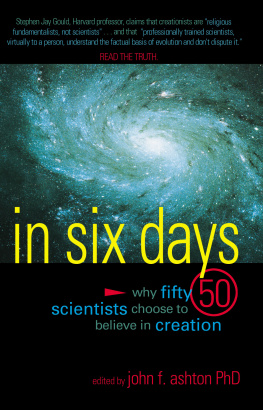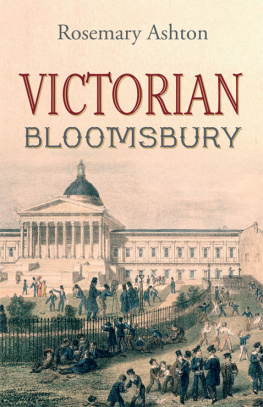PREFACE.
It was probably Solomon, who, in Ecclesiastes, cap. 12, v. 12, said, Of making many books there is no end. But, if this book had to have been written by him, he might, probably, have modified his opinion.
I have read some books in my life-time, re the sixteenth, seventeenth, and eighteenth centuries, and therefore was not taken aback when I was advised by a learned friend, whom I consulted as to the subject of a new book, to try the Musgrave Tracts, in the British Museum. I thanked him, and wrote for them, when I was politely asked, Did I want them all? Of course, was my reply; when I was told, with the courtesy that particularly distinguishes the establishment, that I had better come into an inner room, and have them down shelf by shelf.
The books came in a continuous stream, until I asked if there were any more. Oh, yes, was the reply; and, when I had finished my job, I found I had gone through more than 1760 volumes. Add to this over 200 other books and newspapers used for reference, &c., and that will represent some amount of the labour employed in writing a book.
I have strung together a series of chapters of different phases of social life and biography of the last century, none of which have (as far as I am concerned) appeared in any magazine, but which have all been specially written for this book. And this I have done so that the book may be taken up at any time, and laid down again at the end of an article; and perhaps the best reason for my publishing this book is, that it gives the reader a brief resum of each subject treated, taken from sources, thoroughly original, which are usually inaccessible to the general public, and known but to few students.
They are diverse, to suit all tastes; and if this, my venture, is successful, I may bashfully hint that my store is not yet exhausted.
JOHN ASHTON.
A FORGOTTEN FANATIC.
O
One of the most curious phases of religious mania is that where the patient is under the impression that he is divinely inspired, and has a special mission to his fellow-men, which he is impelled to fulfil at all costs and under all circumstances.
From the earliest ages of Christianity pseudo-Christoi, or false Christs, existed. Simon Magus, Dositheus, and the famous Barcochab were among the first of them, and they were followed by Moses, in Crete, in the fifth century; Julian, in Palestine, circa A.D. 530; and Serenus, in Spain, circa A.D. 714. There were, in the twelfth century, some seven or eight in France, Spain, and Persia; and, coming to more modern times, there was Sabbatai Zewi, a native of Aleppo, or Smyrna, who proclaimed himself to be the Messiah, in Jerusalem, circa 1666. The list of religious fanatics is a long one. Mahomet, Munzer, John of Leyden, Brothers, Matthews, Joanna Southcott, Courtenay, or Thomas, and Joe Smith are among them, and are well-known; but there are hundreds of others whose work has not been on so grand a scale, or whose influence has not been of the national importance of the above; and it is of one of these forgotten fanatics that I now treat.
Well out in the Atlantic Ocean, far west, indeed, even of the Western Isles, stands the lonely island of St. Kilda, or Hirta, as it used to be called, from h-Iar-tir, the Gaelic for West land, or West country. Its rocky sides are inaccessible, except at one landing-place, at a bay on the south-east, and it is the home and breeding-place of millions of sea-birds, whose flesh and eggs form the main supply of food for the inhabitants, and whose feathers, together with a few sheep and cattle, and what little barley can be grown, or butter can be made, pay the trifling rent required, and help to provide the bare necessaries of civilized existence.
The inhabitants are not healthy, so many dying, as young children, of a disease locally known as the eight day sickness, a disease which generally attacks them on the eighth or ninth day after birth, and mostly proves fatal in the course of a day or two. From this and other causes, including falls from cliffs, the population has remained nearly stationary, as is evidenced by the fact that for the last hundred years the inhabitants have averaged under a hundred. Indeed, at one time, in 1724, small-pox attacked the islanders, being imported by one of them on his return from a visit to Harris, and all the adults died except four, who were left to take care of twenty-six orphans, all that were left of twenty-four families.
Lying out of the ordinary track of boats, even of yachts, it is, even now, seldom visited, and in the last century no one except the steward of Macleod (whose family have been the possessors of St. Kilda for hundreds of years), who made an annual pilgrimage to collect the rent, ever came near the place. Its loneliness was proverbial, so much so that it was an article of faith that the arrival of strangers brought with them a kind of influenza called boat-cough, which was sometimes fatal. This singular disease does not seem to be confined to St. Kilda, for Bates, in The Naturalist on the River Amazon, mentions certain tribes near Ega who are gradually becoming extinct from a slow fever and cold, which attacks them after they have been visited by civilised people. And in the Cruise of H.M.S. Galatea, in 1867-68, it says, Tristran dAcunha is a remarkably healthy island; but it is a singular fact that any vessel touching there from St. Helena invariably brings with it a disease resembling influenza.
This belief is amusingly illustrated in Boswells Journal of a Tour to the Hebrides. This evening he (Dr. Johnson) disputed the truth of what is said as to the people of St. Kilda catching cold whenever strangers come. How can there, said he, be a physical effect without a physical cause? He added, laughing, The arrival of a ship full of strangers would kill them; for, if one stranger gives them one cold, two strangers must give them two colds, and so on in proportion. I wondered to hear him ridicule this, as he had praised McAulay for saying that it was manly in him to tell a fact, however strange, if he himself believed it. They said it was annually proved by Macleods steward, on whose arrival all the inhabitants caught cold. He jocularly remarked, The steward always comes to demand something from them, and so they fall a-coughing. I suppose the people in Skye all take a cold when (naming a certain person) comes. They said he only came in summer. JohnsonThat is out of tenderness to you. Bad weather and he at the same time would be too much.
The first printed account of this poor lonely island is, probably, in a little book by Donald Monro, High Dean of the Isles, a chaplaine, they baptize their bairns themselfes.
At the end of the seventeenth century, when Roderick, the religious impostor, or fanatic, lived, things spiritual were somewhat improved, although they only had the annual clerical visit. There were three chapels on the island, to serve a population of one hundred and eighty. One was called Christs Chapel, hardly discernible from one of their dwellings, being built and thatched in a similar manner; but it contained one of their chief treasures, a brass crucifix, which lay upon an altar therein. They paid no adoration or worship to this, but it was their most precious possession, being used, as are the gospels elsewhere, for the purpose of solemn asseveration, and it was also made use of at marriages and the healing of strife.





